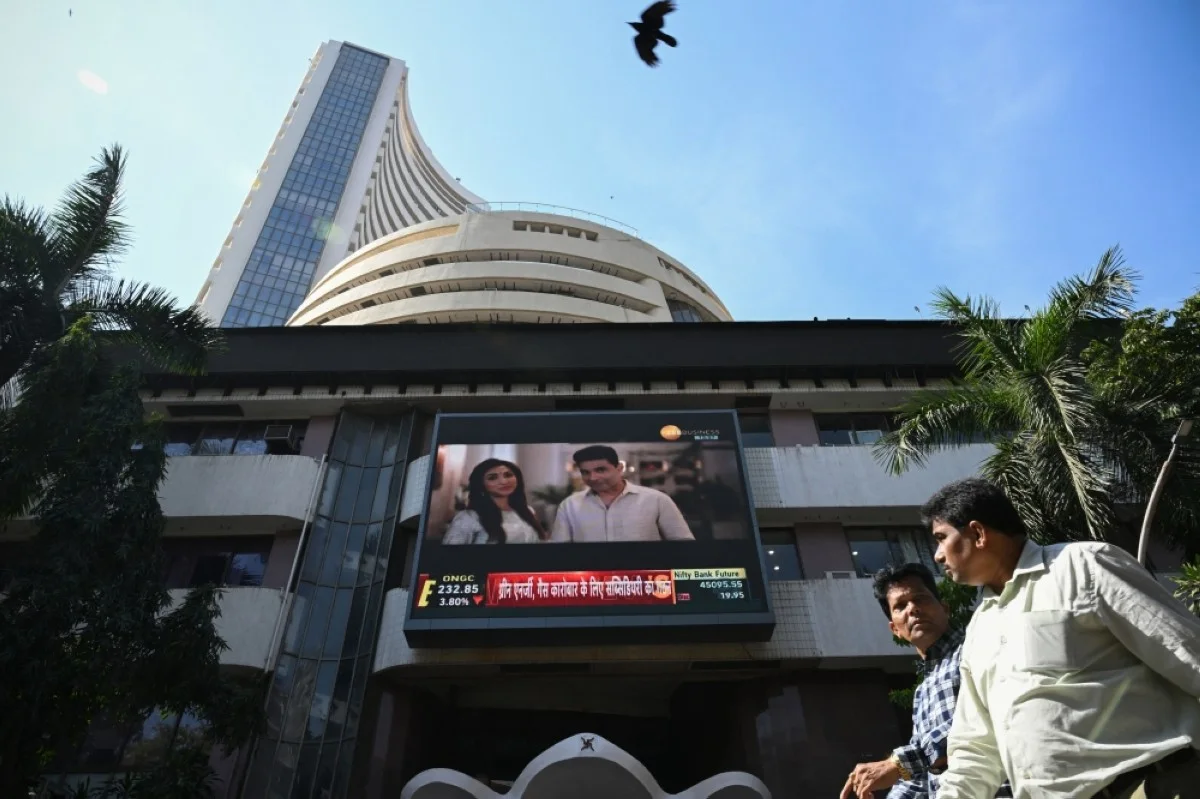NEW DELHI: India’s stock market has edged out Hong Kong to become the world’s fourth-largest, a milestone that underscores growing global investor optimism about New Delhi’s economic prospects, Bloomberg said Tuesday. The total value of shares listed on Indian exchanges hit $4.3 trillion on Monday, slightly higher than Hong Kong’s $4.29 trillion, according to data compiled by Bloomberg.
The shift in the global pecking order reflects the standout market year that India has had in 2023, as higher retail investor participation, strong economic growth and increased liquidity boosted the combined value of shares listed on Indian exchanges. The Indian stock rally comes as Hong Kong’s market grappled with its fourth consecutive year of losses, with money managers moving billions out over worries of China’s economic downturn.
In the last two years, there has also been increasing political pressure on US investors to cut their exposure to Chinese companies. India’s Nifty 50 index jumped 20 percent in 2023, its eighth straight year of gains. On the other hand, Hong Kong’s benchmark Hang Seng index, which includes shares of many influential Chinese companies, ended last year 14 percent lower.
“We think India is among the most attractive long-term opportunities... India offers meaningful pro-growth policy support, unique demographic tailwinds, [and] superior economic and earnings growth potential,” Rashmi Gupta, portfolio manager at JP Morgan Private Bank, said in a recent note.
Separately, shares of India’s Zee Entertainment nosedived on Tuesday after a proposed $10 billion merger with the local unit of Japanese giant Sony was called off. The initial 30 percent plunge saw Zee lose as much as 55 billion rupees ($661 million) in market value. At least five brokerage firms, including Hong Kong’s CLSA, have slapped a “sell” rating on the stock.
The merger’s failure, reportedly because of disagreements over who would lead the new entity, has also reignited worries over Zee’s ability to thrive in an increasingly competitive entertainment market. The collapsed deal leaves both Sony and Zee more vulnerable at a time when billionaire Mukesh Ambani-led Reliance Industries (RIL) is negotiating a merger with Disney’s India unit, Bloomberg News reported. India’s entertainment market, worth tens of billions of dollars, is already one of the world’s biggest, while smartphone adoption is forecast to expand further in the coming years. — AFP
“Considering that Zee still has six billion rupees cash on books... we see no bankruptcy risks,” Ambit Capital research analyst Vivekanand Subbaraman wrote in a note. “However, investors will find it very difficult to ascertain the fair value of Zee given uncertainties on the operator,” Subbaraman added, pointing to issues including the debate on whether CEO Punit Goenka will remain at the helm. — AFP











